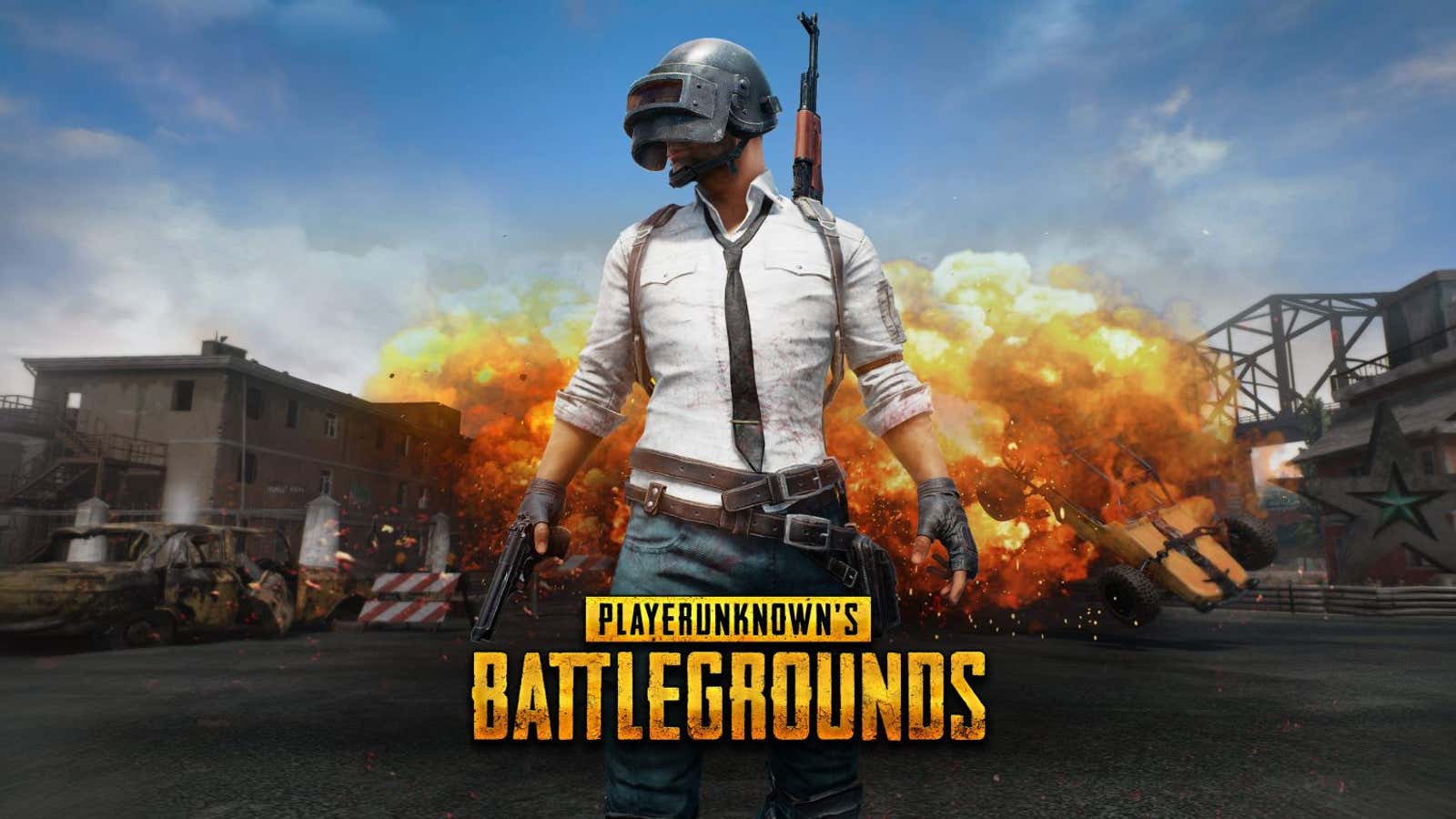Yesterday (Nov. 27), Chinese tech company Tencent announced (link in Chinese) that it will co-develop an official mobile version of PlayerUnknown’s Battlegrounds (PUBG) through a partnership with the game’s South Korean developer Bluehole.
The announcement comes a week after Tencent said that it had won the exclusive rights to publish and distribute the game in China. Tencent secured these two deals despite an earlier notice from Chinese media watchdogs that PUBG and similar survival games are not likely to get a license to officially launch in China because they contain too much blood and gore.
A tech giant whose portfolio includes China’s most popular social network WeChat, Tencent briefly surpassed Facebook in market value last week to become the world’s fifth-largest publicly traded company. Through a series of acquisitions, it also owns popular gaming titles including Clash of Clans and League of Legends.
PUBG has sold more than 20 million copies globally, making it the hottest video game of the year. At its peak, the survival-shooter had nearly 2 million players online simultaneously, setting a record on gaming platform Steam. The concept of the game is similar to the plot of The Hunger Games: Players are parachuted onto an island to scavenge for weapons that range from frying pans to AK-47s and fight each until one player remains.
The adaptation from PC, typically the realm of hard-core gamers, to mobile will help the title broaden its appeal and gain traction among “casual” mobile gamers. In China, mobile games adapted from popular PC games have become major successes recently.
The game’s wild popularity had inspired a number of Chinese copycats—prominent among them are mobile titles from NetEase and Xiaomi. Tencent is also planning to launch its own clone for mobile devices, even as it works to bring the original to smartphones.
One key differentiator of these copycats is that they work around Chinese censors. In October, China’s official video-copyright body said that survival games like PUBG are against the country’s “core socialist values” and are harmful to the mental health of youths. In NetEase’s Wildness Action, for example, red banners with Communist Party slogans are emblazoned everywhere from buildings to bridges.
Tencent said PUBG’s mobile version will retain the “core gameplay” of the original PC title, but it will also strictly abide by “relevant policies and regulations,” just like the PC version does in China. The mobile game will first be released in China, though Tencent has not offered details on a release date.
